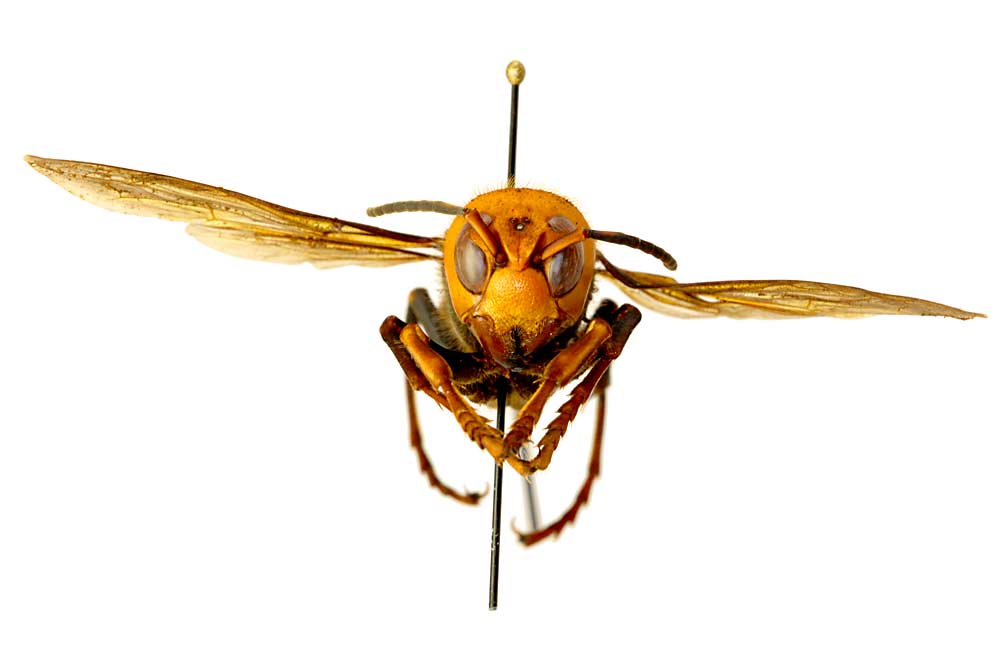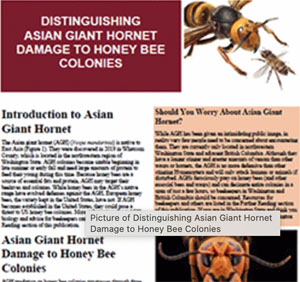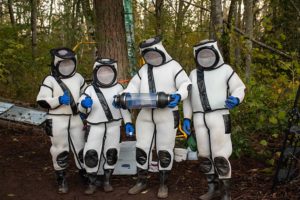
Agricultural authorities say the northern giant hornet, an invasive pest that posed a potential threat to honey bee colonies, is no longer in the United States.
After three years without confirmed detections, state and federal agriculture entomology experts have declared the hornet eradicated from the country, according to a news release from the Washington State Department of Agriculture on Dec. 18.
The hornet was first spotted in December 2019 in rural Whatcom County, Washington, according to the release. WSDA entomologists found and removed a single nest in October 2020 and three in fall 2021 from inside alder tree cavities. They continued trapping efforts and public outreach, but no additional hornets have since been found.
The hornet, Vespa mandarinia, was at times known as the Asian giant hornet and even “murder hornet” for its large size, aggressiveness toward other insects and dangerous sting.
Had the hornets become established in the United States, they could have posed a significant threat to native insects as well as honey bees — and, therefore, to pollination-dependent crops such as tree fruit and blueberries, according to the release. Northern giant hornets are able to kill an entire honey bee hive in as little as 90 minutes. In 2022, Washington State University published a northern giant hornet guide for beekeepers.
The hornets also pose a threat to human health because their sting is more dangerous than that of a honey bee.
Officials praised cooperation between state and federal agencies, as well as the public.
“Without the public’s support for this effort, it is unlikely we would be announcing the eradication of northern giant hornet today,” Sven Spichiger, WSDA pest program manager, said in the release. “All of our nest detections resulted directly or indirectly from public reports. And half of our confirmed detections came from the public. The people of Washington can be proud that we did this by working together.”
In October 2024, a community member reported a suspicious hornet sighting in Kitsap County, though entomologists could not confirm a species because they could not obtain a specimen, according to the release. However, they will continue to trap for the hornets.
“Although they are now eradicated from the state, we’ll always be keeping an eye out for them and encourage community members to do the same,” Spichiger said. “They got here once, and they could do it again.”
—by Ross Courtney









Leave A Comment